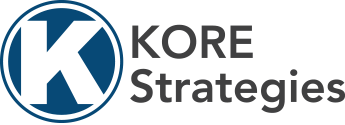
Home » 14 Critical Features To Include For An Effective Sales Page
14 Critical Features to Include for an Effective Sales Page
You just had a great meeting, and you want your client to remember your offering highlights. Here’s a great summary of must haves!
I read a terrific article in Forbes written by the Expert Panel®Forbes Councils Member on 8/13/21. Here are the key components without the pop ups and ads. 😊
If done correctly, a sales page can prove to be an incredible resource that succinctly provides information while also engaging, converting and supporting current and prospective customers. If done without care, businesses risk losing both the attention of visitors and money.
- Basic Product Information
In B2B, a sales page should have basic information about the product and a clear call to action. We know your product is great, but listing every single feature on the sales page can give potential customers the feeling they know all there is to know and they may move on before you even get the chance to start a conversation. Leaving the slightest bit of mystery will appeal to their curiosity to learn more and engage. – Tlalit Bussi Tel Tzure, IceCure Medical - Relevant Topics Of Interest
Leading sales pages attract customers by identifying a desire and curiosity to engage. The key to drawing customers in is to discover a topic of interest relevant to them. Whether it is a solution or not, it is up to the engagement process of the customer to decide. However, if you are selling a shiny toy or an impulsive buy, you should find a deeper “want” than “need.” – Claudia Lin 林詠涵, HUB International - A Compelling Story
A key feature is a compelling story to answer why they should care. Customers don’t care about your solutions; they care about their problems. Tell them how your products or solutions will solve their problems and you will have their attention. Steve Jobs is thought to have once said that people don’t want to know about computers; they want to know how computers will help them live better. – Gabriel Tan, GUAVA Amenities - Proof Points
Nothing is as effective as proof. Decision makers are often tired of high-level communication based on general concepts. Showing effectiveness in the form of data, testimonial or a case study can be easily referenced. The best option is to select cases that are similar enough to the objective, but different enough from each other. Independence increases the chances that each will add value. – Anna Jankowska, RTB House - White Papers
Include customer white papers and their conviction of success with the product. Not everyone wants to be the pioneer and many would prefer to know someone else who has walked down the path prior to them. While businesses are at risk of making poor decisions, clients prefer to hear from their peers and know that others have also vetted the technology. – Donald O’Sullivan, Pegasystems - A Quick What, Why and How
Answering what, why and how in the most concise way will help the most. The attention span of most customers is not much. If they can’t find what they need on the landing page, chances are they will not go further on the website or further in talking to you. I firmly believe an impression is created in the first two minutes of reading your page. Hence whatever you have to say should get covered in these two minutes. – Rahul Sarkar, Tech Mahindra - The Company’s Purpose and Promise
Identify your company’s purpose and promise alongside the sales pitch. We tend to assume customers know what our brand stands for and this can lead to misinterpretation. Lead with this to immediately connect with the heart of the customer. And don’t we know, humans make decisions based on what feels good and just. If they understand your purpose and believe in your promise, they will buy. – Maria Wu, Maud Medical Inc - A Live Chat Box
I think a live chat box is crucial. So many clients want answers now and if you have the people power to manage this feature, you will close more deals in the long run by engaging customers in a non-threatening, non-salesy way. – Jessica Blais, VintageView Wine Storage Systems - Visual Storytelling
Focus on visual storytelling by clearly articulating the customer journey and getting creative with an eye-catching graphic. You want your potential customer to be visualizing their journey with your organization, so create relatable scenarios that address pain points and highlight key benefits. – Jared Ingle, Interrelate - Interactive Tools
Web calculators are an essential marketing and sales tool. Customers want an interactive way to explore the value your product or service can bring to their business. Customer value management tools make it feasible to build this functionality using real-world value calculations and turnkey tools that streamline the development process while using real-world variables to deliver meaningful measures. – Jim Berryhill, DecisionLink - Testimonials
Customer stories and case studies are imperative to today’s buying process. Customers want to see how you’ve solved a problem for businesses and teams like them. Ask your happiest customers to provide testimonials that you can post to your sales page and include in sales presentations. – Ed Calnan, Seismic - Concise Messaging
An effective sales page must include the core message of serving the customer best and providing value to their business. In addition, it requires concise messaging to communicate how we can empower customers to overcome their challenges and achieve their overall business goals. – Britta Lorenz, PDAgroup GmbH - Contact Information
While a contact form on a website provides a formatted way to gather important prospective customer information, the process can seem daunting as it does little to solve an immediate customer need. A contact name, email and phone number provide a faster way for a potential customer to connect with someone and have their immediate needs addressed efficiently. – James Overley, East Coast Warehouse & Distribution - Marketing That Prioritizes Clients
The key is to make it about the prospective client, not your company’s features and benefits. They need to know that you see their struggles, as well as have an understanding of the impact those struggles have on them. Websites and marketing collateral should be about them, not you—only then can you talk about what you offer. – Mark Thacker, Sales Xceleration
At KORE Strategies, we’re committed to putting the customer first in everything we do. From our sales process to our customer service, we’re constantly striving to deliver value and exceed expectations.
Recent KORE Thoughts

Hospital Sales Cycles and the Myth of “80% Confidence”
Hospital Sales Cycles and the Myth of “80% Confidence” I

Founder-Led Selling in MedTech: When Strength Becomes Limitation
Founder-Led Selling in MedTech: When Strength Becomes Limitation Founder-led selling

Clinical Validation Is Not Commercial Readiness: The MedTech Gap No One Talks About
Clinical Validation Is Not Commercial Readiness: The MedTech Gap No

